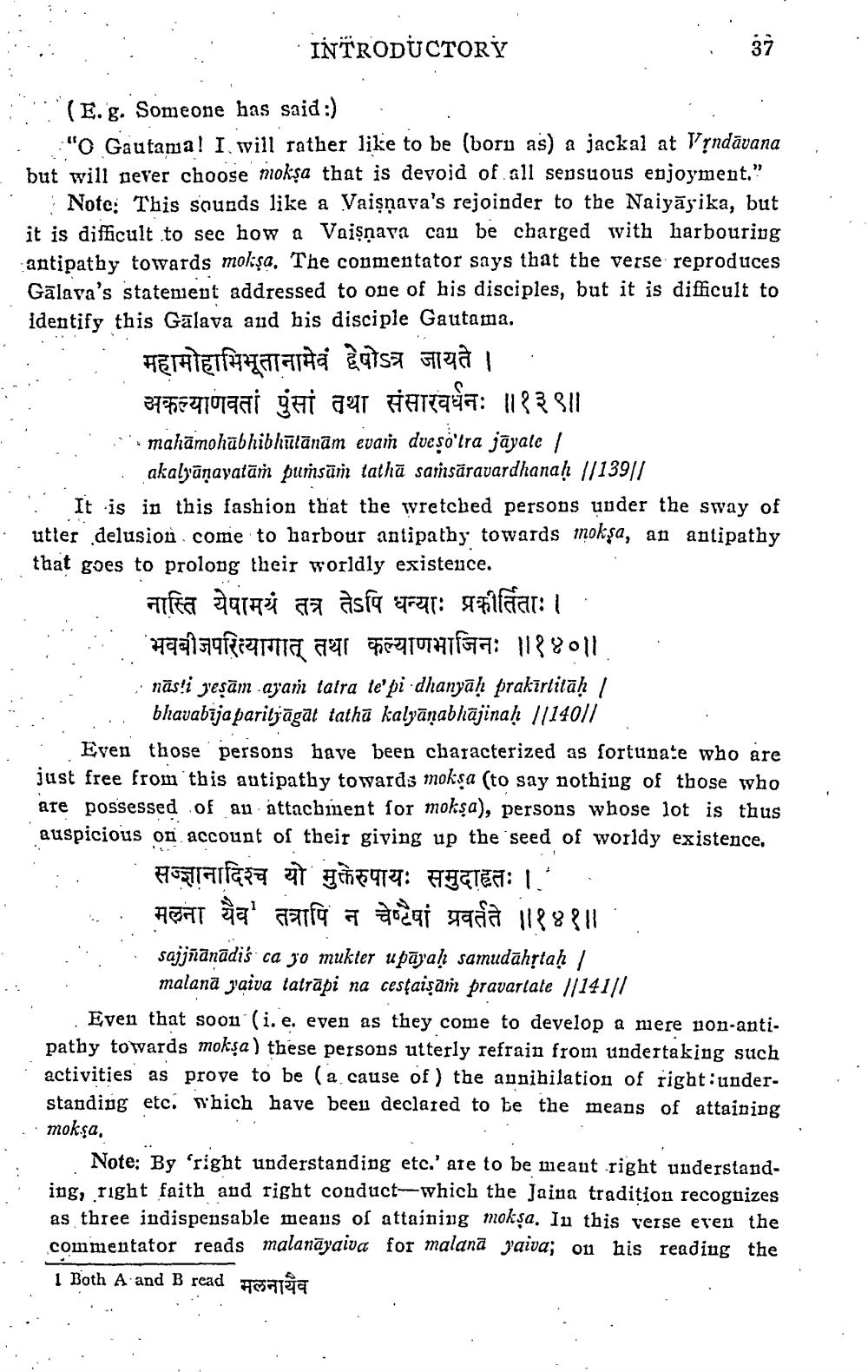________________
INTRODUCTORY
,
L (E. g. Someone has said:) . . . :"O Gautama! I will rather like to be (boru as) a jackal at Vịndāvana but will pever choose mokṣa that is devoid of all sensuous enjoyment."
Note: This sounds like a Vaişņara's rejoinder to the Naiyāyika, but it is difficult to see how a Vaişņara cau be charged with harbouring antipathy towards mokşa. The conmentator says that the verse reproduces Gālava's statement addressed to one of his disciples, but it is difficult to identify this Gālava and his disciple Gautama.
महामोहाभिभूतानामेवं देषोऽत्र जायते ।
3475527079ai ghi 791 Farada: 1183311 in mahāmohābhibhūtānām evan dvesö'tra jāyale /
akalyāṇayatāṁ puṁsām tathā saisāravardhana” 1/1391/ It is in this fashion that the wretched persons under the sway of · utter delusiou come to barbour antipathy towards mokşa, an antipathy that goes to prolong their worldly existence.
नास्ति येपामयं तत्र तेऽपि धन्याः प्रकीर्तिताः । ... भवबीजपरित्यागात् तथा कल्याणभाजिनः ॥१४॥
nās!i yeşām ayam tatra te'pi dhanyāḥ prakīrtitah /
bhavabīja paritjāgāt tathā kalyāṇabhājinaḥ 11140|| Even those persons have been characterized as fortunate who are just free from this antipathy towards moksa (to say nothiug of those who are possessed of an attacbinent for mokşa), persons whose lot is thus auspicious on account of their giving up the seed of worldy existence,
सज्ज्ञानादिश्च यो मुक्तरुपायः समुदाहृतः । .HEHT a' gatlo a audai gada 1188811... ..... sajjñānādiś ca 30 mukter upāyaḥ samudāhstaḥ /
malanā gaiva tatrāpi na cestaiņām pravarlate 1/14111 Even that soon (i.e. even as they come to develop a niere non-antipathy towards moksa) these persons utterly refrain from undertaking such activities as prove to be (a cause of) the annihilation of right:under
standing etc. which have been declared to be the means of attaining . moksa,
Note: By 'right understanding etc.' are to be meant right understanding, right faith and right conduct--which the Jaina tradition recognizes as three indispensable means of attaining mokşa. In this verse even the commentator reads malanäyaiva for malana yaiva; on his reading the 1 Both A and B read Farha




